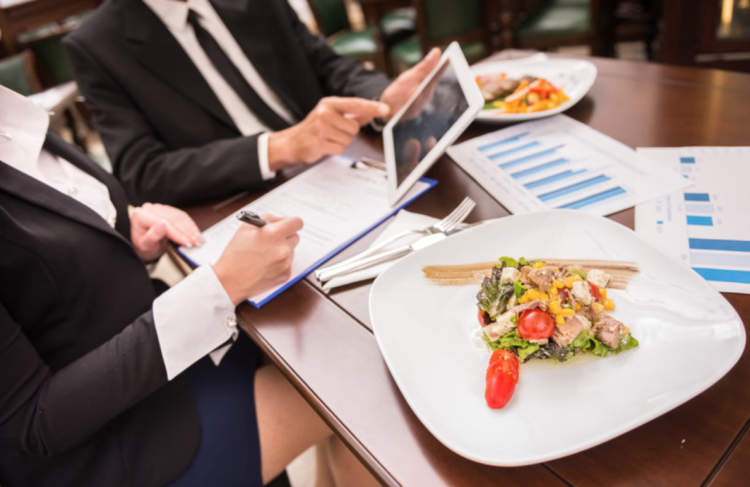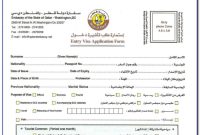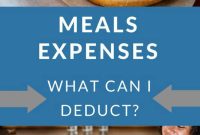When traveling for business, deducting meals from your taxes can be a difficult process. With the right knowledge and techniques, however, you can learn how to properly deduct meals for your business trips. There are various rules and regulations that need to be followed when filing for meal deductions, such as keeping accurate records and abiding by meal maximum limits.
Knowing the most effective meal deduction strategies can ensure that you optimize your tax deductions and get the most benefit out of your trip expenses. This article will provide you with the information necessary to properly deduct meals for business travel and ensure that you maximize your deductions.
Determining Eligible Business Expenses
The IRS has certain guidelines as to which expenses are eligible for tax deductions, and meals are no exception. Meal expenses may be deducted by an individual in pursuit of their business provided certain conditions are met. To properly deduct meals for business travel, it is important to understand and consider the following points.
Meals During the Course of a BUSINESS TRIP
Any meal expenses incurred while traveling on business may be deducted. This may include meals for yourself, employees, or customers. However, meals should be reasonable in cost and should not exceed what is deemed necessary. Additionally, a written record of expenses must be kept in order to prove that the meals were for business purposes.
Meals During WORK HOURS
Expenses for meals consumed during work hours may also be claimed as a tax deduction, although the IRS limits the amount that may be deducted. In order to deduct meals taken during work hours, the following conditions must be met:
- Only 50% of meal expenses are eligible for a deduction
- Meals must be consumed on work premises
- Receipts should be kept as proof of purchase
OTHER Eligible Expenses
In addition to meals, there are other expenses that are eligible for tax deductions. These expenses can include travel expenses such as airfare, lodging, and car rentals. Additionally, certain entertainment expenses, such as tickets for sporting events or concerts, may be deductible. Receipts should be kept as proof of these expenses.
By understanding and following the rules regarding eligible expenses, individuals can properly deduct meals and other expenses. This can help them save money on their taxes, as well as ensure they are compliant with IRS guidelines.
Documentation Required For Meal Expenses
When travelling for business, the claimant may deduct a certain amount of the allowable expenditure for meals from the expense. Keeping proper documentation of meals for business travel is critical in order to avail such deductions. To provide the proper documentation for these expenses, the following are required:
- A receipt from the person providing the service or providing the merchandise
- The cost of the meal including taxes, as indicated on the receipt.
- The date of the meal
- Details of the business related activity the meal was for (otherwise known as the ‘business purpose’)
- The number of people the meal was for
Where items such as tips are itemized on the receipt, they must also be included in the expense. Where tips are paid by cash, card or other methods in addition to the total on the receipt, the itemized total must still be included for a claim. Lastly, the documentation must show what part of the cost is attributable to the meal, as this must be accurately stated for expenses.
For any travel meal expenses deducted from a business expense account, rigorous documentation is essential, and this information must be tracked and stored for any potential future audit. Without the necessary documentation, any potential deduction can be denied, and major consequences can occur. Therefore, business travellers must ensure that all meal expenses incurred during travel are properly documented.
Common Errors Committed With Meal Expenses
Businesses often require their employees to travel for various reasons. Typically, they are given a fixed budget to cover their meals and other expenses related to travel. To properly deduct meal expenses, it is important to ensure that the expenses are valid, allowable and in any case not denied deductions.
Unfortunately, owing to the complexity of the tax laws, there are often errors committed when preparing travel meal expense deductions. Here are some of the common errors to avoid:
- Not providing adequate receipts or documents.
- Claiming expenses for prohibited meals such as alcohol.
- Claiming meals expenses for the wrong personnel.
- Failure to document sufficient detail information related to the meal expenses.
- Citing incorrect date, place or time of meal.
- Not ensuring that expenses are not excessive.
- Claiming non-allowable meals.
These are only some of the errors that can be avoided when preparing for your meal expenses deduction. To make sure your deductions are valid and allowable, read on to find out how to properly deduct meals for business travel:
Tips For Maximizing Business Meal Deductions
When planning a business travel, there are various tax deductions that are applicable. One of the expenses that can offset the income tax that you would be obliged to pay is meals. A business meal is one expense that a business can take, however, in order to maximize the deduction, some tips must be observed.
Receipts are very important when it comes to business meal deductions. You should always make sure that you get a receipt for any meals that you purchase while on business travel, as this is the primary evidence of the expense. All receipts should be kept and taken back to your place of business so that the deductions can be properly applied. Additionally, a record should also be kept of the purpose of the meal, as this also needs to be indicated on the tax return.
To maximize the business meal deductions, here are some tips to follow:
- Ensure that all meals correspond to business activity – before taking a meal, you must determine if it is related to your work or business. Any meal that does not correspond to business activity or advance your work should not be deducted.
- Keep accurate records – all receipts must be kept and an accurate record of the purpose for each meal should also be kept. This will be used on the tax return to justify the deductions.
- Be careful with lavish spending – if you spend too much on meals, then the IRS may disqualify the deductions. In general, stick to moderate meal costs.
- Research local standards – different locations may have different meal standards. When traveling, make sure to research the standard meal costs for the area so that reasonable deductions can be made.
- Know the limitations – meals taken with clients are the only ones that are deductible. Alcoholic drinks or meals taken with employees are typically not allowed as deductions.
By following these tips, you can maximize the business meal deductions on your tax return. Keep in mind, for any meal to be properly deducted, it must be related to business activities, accompanied with a receipt, and have an accurate record of the purpose of the meal.
A Guide To Tax Deductible Meals On Business Travel
It is important to understand the rules and regulations regarding meal expenses while on business travel. A business traveler can deduct 50% of the cost of any meals they pay for while away from home, as long as these meals are considered “ordinary and necessary” expenses for the business. However, the IRS imposes certain restrictions on these deductions, such as requiring proof of expenditure, a clear business purpose for the meal, and documenting meals that are shared. Although it may require a bit of extra effort, following these guidelines can save the business traveler large amounts of money in taxes.
By understanding the IRS’s rules and regulations that deal with meal deductions on business travel, a business traveler can maximize the amount of money they can deduct and ultimately save money on their tax bill. By following the basic guidelines outlined by the IRS, business travelers can ensure that their meals are properly deducted in order to get the most savings.




